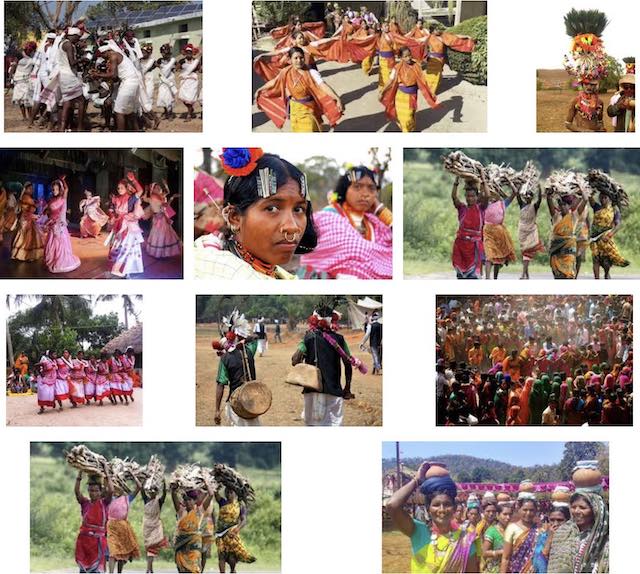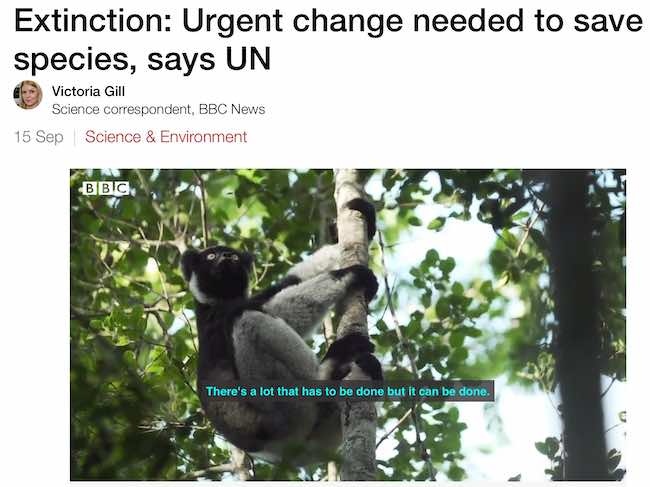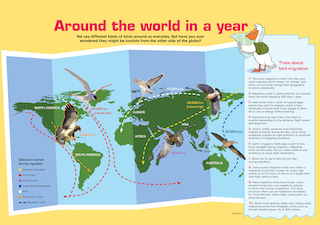The book explores the possibility of sustainable use of biodiversity and associated traditional knowledge with economic benefit for the communities and countries that have conserved them for generations.
By S. GOPIKRISHNA WARRIER
THERE is an irony related to biodiversity and economics. Communities that live in close contact with biodiversity-rich forests are economically poor, whereas people who live in biodiversity-poor urban centres and make commercial use of the biological resources are economically rich. To stretch the theory further, biodiversity-rich tropical countries are usually economically poor, whereas developed industrialised countries, which use biological resources to manufacture industrial products, are rich. […]
A trek with Kanis
There were far more questions than answers. The Jawaharlal Nehru Tropical Botanic Garden and Research Institute (JNTBGRI) in Thiruvananthapuram, Kerala, entering into an agreement with the Kani tribal people of the Western Ghats was one of the efforts taken to work out a benefit-sharing model with the conservers of biodiversity and associated traditional knowledge. Scientists of the JNTBGRI discovered the energy-giving qualities of the fruit of a plant called “Arogyapacha” (Trichopus zeylanicus) during their trek into the forests in 1987 for an ethnobotanical survey with elders of the Kani tribe as guides. Even as the scientists panted as they climbed the steep slopes, the tribal elders showed no signs of fatigue. The reason for this, they found out, was “Arogyapacha” fruits they consumed.
An agreement was worked out between the Kanis, the JNTBGRI and a private company Arya Vaidya Pharmacy Ltd (AVP), to bring this biodiversity product and the associated traditional knowledge into greater public use by developing a commercial drug called Jeevani. The JNTBGRI scientists identified and isolated 12 active compounds from the fruit and filed two patent applications on the drug. […]
A trust fund, with nine Kanis as trustees, was established in 1997.
The benefit-sharing arrangement, however, went through some chaotic phases. The Forest Department had reservations about declaring Arogyapacha a minor forest produce, for fear of its over-exploitation. There was a lack of unanimity among the Kani people about their understanding of the benefit-sharing and the trust arrangement. Then there were the complexities relating to who owned the resource and the traditional knowledge and whether the plant was growing on private or government land. […]
The Nagoya protocol
Also, the Nagoya Protocol on Access and Benefit Sharing, an offshoot of the CBD, came into force in October 2014, mandating countries to enact laws to protect these elements. The protocol aims to facilitate access to genetic resources and share benefits from their commercial use with the communities in an internationally acceptable manner, which has legal certainty and transparency.
Interestingly, India had most of the elements of the Nagoya Protocol as part of its Biodiversity Act of 2002. Thus, it has much of the framework required for commercialising biological diversity and associated traditional knowledge in a sustainable manner. […]
Srivastava’s conclusions and recommendations may not be the last word on the subject as it is constantly evolving. But, his effort to comprehensively include in the book all aspects of access and benefit sharing will certainly enable managers, researchers, activists and representatives of the indigenous community to negotiate better deals in the future.
S. Gopikrishna Warrier is an environment journalist and blogger.
Source: Frontline Magazine, May 27, 2016
Date Visited: 2 December 2017
Many indigenous peoples, local communities and governments seek intellectual property (IP) protection for traditional knowledge (TK) and traditional cultural expressions (TCEs) as intangible assets. Such assets can range from traditional medicine and environmental knowledge to art, symbols and music.
Genetic resources (GRs) as such are not patentable but inventions based on them may be. Widespread use and the digital and technological transformation of GRs for innovation in the life sciences creates the need for a unique, cross-cutting approach to the interface between IP and GRs.
Source: “Genetic Resources, Traditional Knowledge and Traditional Cultural Expressions”, World Intellectual Property Organization
URL: https://www.wipo.int/tk/en/
Date Visited: 3 January 2022
Tip
A fictionalized account of the intellectual property rights (IPRs) discussed above has been published in 2017:
I am very happy to share with you the link to my third Intellectual Property law thriller, The Dravidian – God’s Own Tribe, which is now available on Amazon Kindle. The novel is loosely based on the traditional knowledge case of the Kani Tribe from the Western Ghats. Link to my novel: https://www.amazon.in/Dravidian-Gods-Tribe-Legal-Thrillers-ebook/dp/B076TG5MH9
Source: email from Dr. Kalyan C. Kankanala 2 December 2017
Up-to-date reports by Indian experts and journalists
Search tips
Combine the name of any particular state, language or region with that of any tribal (Adivasi) community.
Add keywords of special interest (music, poetry, dance just as health, sacred grove and biodiversity); learn about the rights of Scheduled Tribes such as the “Forest Rights Act” (FRA); and the United Nations “Declaration on the Rights of Indigenous Peoples”, “Universal Declaration of Human Rights”, “women’s rights”, or “children’s right to education”.
Specify any other issue or news item you want to learn more about (biodiversity, bonded labour and human trafficking, climate change, ecology, economic development, ethnobotany, ethnomedicine, global warming, hunter-gatherers in a particular region or state, prevention of rural poverty, water access).
For official figures include “scheduled tribe ST” along with a union state or region: e.g. “Chhattisgarh ST community”, “Himalayan tribe”, “Scheduled tribe Tamil Nadu census”, “ST Kerala census”, “Particularly Vulnerable Tribal Group Jharkhand”, “PVTG Rajasthan”, “Adivasi ST Kerala”, “Adibasi ST West Bengal” etc.
In case the Google Custom Search window is not displayed here try the following: (1) toggle between “Reader” and regular viewing; (2) in your browser’s Security settings select “Enable JavaScript” | More tips >>
Note: hyperlinks and quotes are meant for fact-checking and information purposes only | Disclaimer >>
List of websites covered by this Google custom search engine
Academia.edu (platform for academics to share research papers) – www.academia.edu
Archive.org – https://archive.org
Centre for Science and Environment – https://www.cseindia.org
Current Conservation – https://www.currentconservation.org
Development and Cooperation (D+C) https://www.dandc.eu
Down To Earth (India) – www.downtoearth.org.in
India Environment Portal – www.indiaenvironmentportal.org.in
Harnessing Nature Magazine – https://harnessingnature.online
Mongabay-India – https://india.mongabay.com
M S Swaminathan Research Foundation – www.mssrf.org
Navdanya (protecting India’s biodiversity based food heritage) – https://navdanya.org
Third World Network (Penang, Malaysia) – https://twn.my
The Shola Trust (nature conservation in the Nilgiri region) – www.thesholatrust.org

Indian online periodicals and platforms | Images view >>
~ ~ ~
Personalize your CustomSearch by combining other search words >>
(e.g. name of a tribal community and region, a craft, or dance and puppetry)
Research the above issues with the help of Shodhganga: A reservoir of theses from universities all over India, made available under Open Access >>
Note: hyperlinks and quotes are meant for fact-checking and information purposes only | Disclaimer >>
“If we take action, the right action – as the report [on Biological Diversity] proposes – we can transition to a sustainable planet.” […] Many good things are happening around the world and these should be celebrated and encouraged […] We have to act now. It is not too late. Otherwise, our children and grandchildren will curse us because we will leave behind a polluted, degraded and unhealthy planet.” – Elizabeth Maruma Mrema, executive secretary, UN Convention on Biological Diversity – “Extinction: Urgent change needed to save species, says UN”, BBC News, 15 September 2020 >>

Watch the video on BBC News | More about Biodiversity in India >>
For additional learning resources visit the website of the Centre for Science and Environment (CSE), “a public interest research and advocacy organisation based in New Delhi”:
Communication for Awareness
CSE’s publications and informational products have been its strength and they have always combined research and readability to get the message across.

CSE’s tools for awareness raising are periodicals, publications, films/short spots, briefing papers, exhibitions, posters and other products. CSE’s informational products reach people in more diverse ways such as features service, website and e-news bulletins. […]
Source: About CSE
URL: https://www.cseindia.org
Date Visited: 10 July 2022
Learn more
Atree.org | Ashoka Trust for Research in Ecology & the Environment (posts)
Biodiversity | Biodiversity hotspot | Hyderabad biodiversity pledge
Climate change | Audio | The Climate Question (BBC Podcast)
eBook | Background guide for education
Ecology and environment | Eco tourism | Tourism | Wildlife tourism
Environmental history and what makes for a civilization – Romila Thapar
Equations blog (Equitable Tourism Options)
Forest Rights Act (FRA) | Hunter-gatherers | Illegal mining | Legal rights over forest land
Information provided by Indian government agencies and other organizations (FAQ)
Nature and wildlife | Crocodile | Elephant | Tiger | Mangrove forest | Trees
PARI’s tales from tiger territory | People’s Archive of Rural India (PARI)
Shola Trust | Nilgiri Biosphere
Water and development – India’s tribal communities
Western Ghats – tribal heritage & ecology
What is the Forest Rights Act about?
Who is a forest dweller under this law, and who gets rights?
